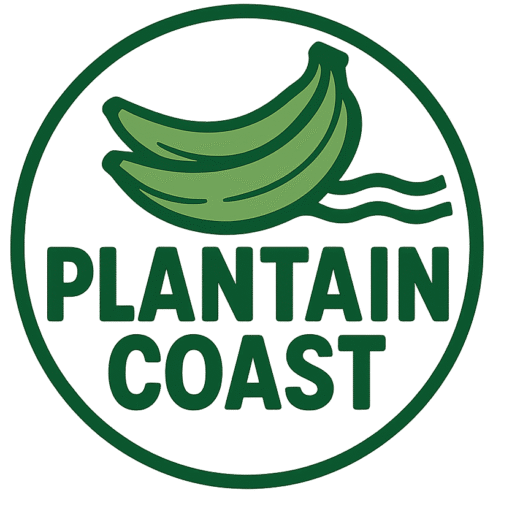This guide for UK plantain buyers explains, in plain language, where plantains move fastest, which channels convert best, what to place on shelf, and how to import with minimal friction.
TL;DR
Plantains are on the up in the UK. Start with a simple three-ripeness set (green, half-ripe, ripe) and keep it topped up. Focus your first listings where demand is naturally strongest, then widen out once the rhythm is set.
1) Market size that justifies shelf space
The category is big enough to matter and small enough to win: around £40M in 2024 and growing at roughly +19% year over year. That combination makes plantains a smart add where your shoppers expect them.
See market context: IndexBox UK plantain overview.
2) Where demand concentrates
Begin where customers already cook with plantains. London is the clear first move, home to about 55% of the UK’s Black Caribbean community, with repeat purchases baked into weekly meals. Next is Birmingham, with roughly 45k Black Caribbean residents and strong independent retail.

Data sources: ONS Ethnicity facts & figures · Census 2021
3) Channels that convert
Supermarkets command most UK food retail (about 79.5%), which means plantains can scale quickly in the right catchments. Price simply: mainstream stores often run at about £0.75 each, while ethnic specialists prefer per-kg for regular bulk buyers.
Example listing: Tesco plantain (per each).
4) What to put on shelf
Keep it easy for customers to shop today and later in the week. Offer a three-ripeness set and hold 3–5 facings where demand is dense, with 2–3 replenishments per week to stay fresh and avoid walks.
5) Import basics without the headache
The paperwork is straightforward: a phytosanitary certificate at origin and the right IPAFFS steps in Great Britain. Plan for a lane-to-lane lead time of roughly 12–21 days and add a small buffer on your first PO.
Official guidance: GOV.UK plant & plant product imports.
6) Keep turnover steady
Empty shelves cost loyalty. UK fresh out-of-stocks hover around 18%, and about 27% of shoppers reconsider their store after repeats. Protect a minimum number of facings and keep all three ripeness stages present.

Context: Retail Times: UK OOS.
7) Sourcing that won’t let you down
The UK brings in around 55.6k tons of plantains each year, ranking as the world’s #4 importer. Mix Andean suppliers with Côte d’Ivoire lanes to balance price, transit time and availability all year.
Buyer checklist
• Add 3–5 facings in London/Birmingham stores.
• Replenish 2–3×/week to keep displays full.
• Price per-each in mainstream and per-kg in specialists.
• Ensure PC + IPAFFS; plan 12–21 days lead time.
Download: Plantain Coast’s Spec Sheet (PDF)
